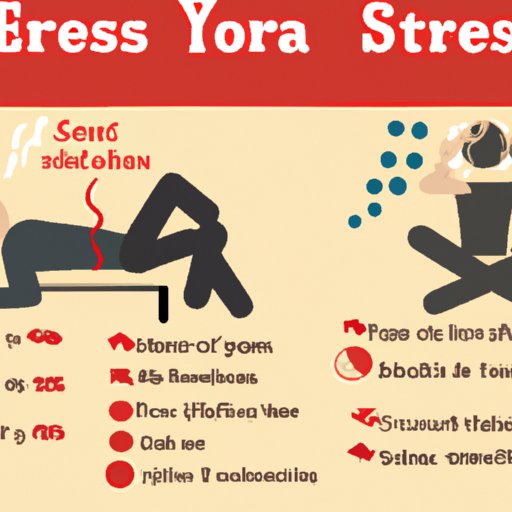
I. Introduction
Stress is an inevitable part of life. While it’s a natural response to challenging situations, consistent exposure to stress can have harmful effects on health, including male sexual health. This article aims to explore how stress affects a man sexually and how to manage it.
II. The Physical Toll of Stress on the Male Body and Its Effect on Sex Drive
Stress causes the body’s adrenal glands to produce cortisol, commonly known as the “stress hormone”. Elevated cortisol levels can lead to decreased testosterone levels, which can cause a decrease in sex drive. Chronic stress can impact the body’s overall health, interfering with blood flow and negatively affecting sexual function.
III. The Psychological Impact of Stress on the Male Psyche and Its Effect on Libido
Stress can cause anxiety, depression, and decreased self-esteem, all of which can impact libido. The psychological effects of stress can also lead to relationship issues, often causing men to withdraw from intimacy. A lack of sex can further heighten stress levels, creating a vicious cycle.

IV. The Role of Stress in Erectile Dysfunction and How to Mitigate Its Effects
Erectile dysfunction (ED) may result from stress and anxiety. Stress can cause the brain to release adrenaline, a hormone that increases heart rate and constricts blood vessels. These physiological changes can inhibit the ability to achieve or maintain an erection. The best way to mitigate the effects of stress on ED is to manage stress levels by engaging in relaxation techniques, mindfulness meditation, or therapy.
V. The Impact of Chronic Stress on Testosterone Levels and Sexual Health
Consistent exposure to stress can lead to chronic low-grade inflammation, which over time can result in decreased testosterone levels and sexual dysfunction. Chronic stress may also increase the risk of conditions like obesity and diabetes, that can further impact male sexual health.
VI. The Link Between Relationship Stress and Sexual Dysfunction in Men
Relationship stress can manifest in sexual dysfunction in men. Conflicts with partners, communication problems, and unresolved issues can all lead to reduced intimacy and decreased sexual interest. High-stress levels can increase tension in the relationship, affecting overall health and exacerbating sexual dysfunction.
VII. Coping Mechanisms and Stress-Reduction Techniques to Improve Male Sexual Health
Managing stress is critical to improving male sexual health. Engage in regular exercises, such as yoga, running, or cardio, to release endorphins, which can help reduce stress levels. Practice stress-relieving techniques such as meditation, deep breathing, or progressive muscle relaxation to help manage stress levels.
VIII. How Stress Management Can Lead to a Happier and Healthier Sexual Relationship
Stress management can lead to a healthier and happier sexual relationship by reducing stress levels, improving blood flow, releasing tension in the relationship, and fostering better communication. A healthy relationship means a healthier you, and with that comes better sex.
IX. Conclusion
Stress affects every aspect of our lives, including sexual health. It’s essential to recognize and manage stress to improve male sexual health. From managing chronic stress levels to practicing stress-relieving techniques and fostering healthy relationships, there are several ways men can take control of their stress and sexual health. By applying the tips mentioned in this article, men can have a happier and healthier sex life.




